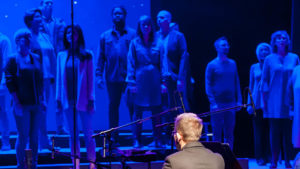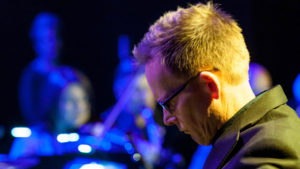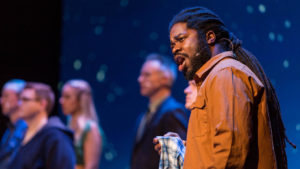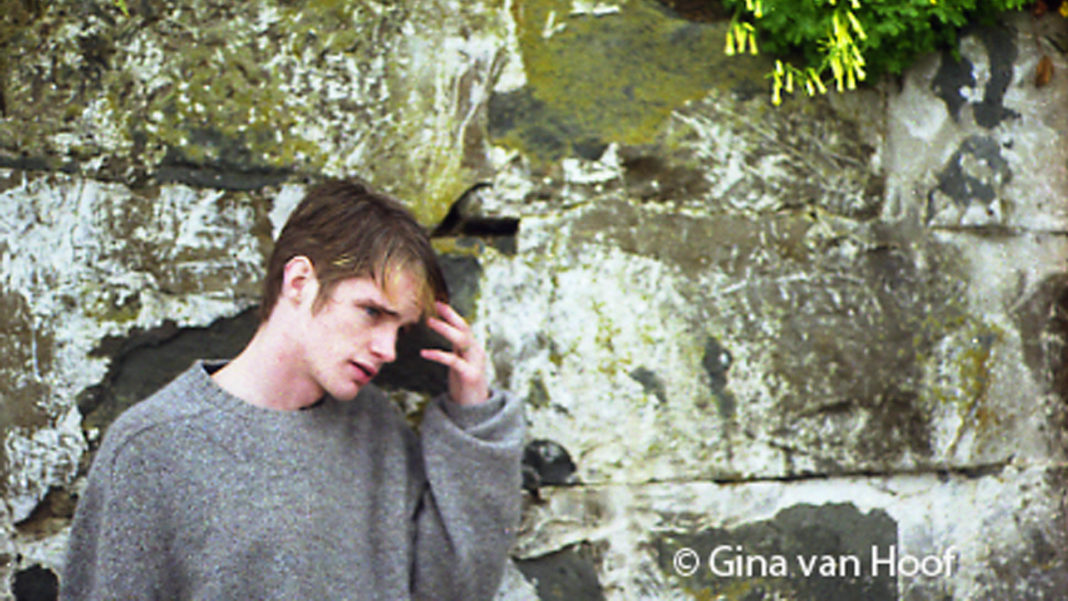It’s been nearly twenty years since we first heard of the horrifying beating, torture and subsequent death of 21-year-old Matthew Shepard in Laramie, Wyoming. It was a senseless act that, unlike many others, seems to linger in our collective psyche. And it also seems to inspire creative artists to speak out. Elton John wrote the song American Triangle. The Laramie Project by Moisés Kaufman and the Tectonic Project has been performed on stage around the country and was subsequently made into a film. John Watts, a friend, mentor and teacher of Shepard’s, has written a play called Matt. The play has had readings in Belgium and London with hopes for a proper production by the end of the year. You can now add Considering Matthew Shepard to the list. Written by composer Craig Hella Johnson and premiered in 2016, the 90-minute work for small ensemble and chorus is being performed at the Ford Theatre in the Cahuenga Pass on Friday and Saturday.

In addition to being a composer, Johnson is the Grammy-winning conductor of Conspirare – an Austin-based choral ensemble. They will be part of these two concerts. I spoke to Johnson about his work, why Shepard’s case stays in our collective memory and the cathartic effect writing Considering Matthew Shepard had on him.
The public has a notoriously short attention span. Why does this story, even twenty years later, still resonate?
I think a lot of it was about Matt. I found it so compelling these sort of extraordinarily ordinary qualities. There’s a movement in my piece, Ordinary Boy, that struck me internally how regular he was. He was from a small town. Just a young guy growing up. I think that was compelling to me. I also do think the fact that his parents were so open about it – almost from the beginning. We shared their grief and sorrow while under cameras so intensely. Then, in short order, I don’t know what grace struck them, we are going to open up now and let Matt’s death become meaningful so this doesn’t have to happen. I call them warriors for love the way they are out there. I think this has contributed a lot.
How much does his “ordinariness” remain part of his appeal?
For me it’s a great element and what I felt drawn to and moved by. As I met with Matt’s parents and his friends and read his journals, it was lovely to know Matt before the cameras were there. Many people will refer to him carrying this great presence and light as a young boy. He was very stubborn. He would dig his heels in. He was opinionated. He sounded like a regular kid growing up.

Beyond staying in our minds, his murder also seems to inspire creative artists. Why did you want to write an artistic response to this tragedy?
For me it was a very strong personal response. That’s what I can speak to and I imagine is true for so many others. There was something that pierced so many of our hearts in such a large and specific way. So many people identified with many qualities of Matt. There were aspects that were so powerful and how he died that was symbolic. Eighteen hours tied to that fence. Important and powerful symbols. His parents are clear they don’t want to associate him with Christ symbolism. The timing was right. Hate crimes are happening all the time that are unnoticed. It was a powerful moment in our history and I’m finding so many people who remember exactly where they were in that moment.

Did writing Considering Matthew Shepard offer any catharsis for you?
I have a much better sense of that in retrospect. It felt personal when it happened. It was almost a child’s question for me. I don’t understand how these things can happen. It’s unfathomable there could be a culture that has some pockets in it that someone could conceive of doing such a hateful act. In the face of such darkness could love be found anywhere at the core? Composing [this] was part of a process of exploring that question. When we perform it it is still alive and we are living to the answer.
How do you feel today about what happened?
I still feel angry when I think about Matt. And what I think about what has happened to so many victims of hate crimes. I do acknowledge that that happened, so acceptance that it happened, yes. Do I accept that it is still in our world? No. The catharsis was in not closing off to life and becoming cynical and jaded. I want to stay awake, stay alive and stay engaged. It was a learning – an inner conviction. We can’t heal unless we do it together. There has to be a healing as a “we.”
What role does the audience experience of seeing Considering Matthew Shepard play in that healing as a “we?”
I want people to sit in a communal space and contemplate on this story. It’s somewhat about Matt, but it’s really about our journey and where do we go from here. The epilogue asks that question. The answer is in all of the practical ways. Be in a relationship with our neighbors, co-workers and have real conversations that are filled with respect, even if that ends up with different votes. How do we each contribute uniquely to our world? How do we each do our part to dream that world and co-create that world? That work is in front of us.
How do you think the ordinary boy about whom you composed this piece would respond if he heard it?
I really think he’d love it. All of his friends and family, they talk about how much he loved the theatre. He loved to be in the front of house, the back of house, anywhere. He was playful in theatrical ways at home. I feel his spirit a lot. It’s playful and it’s meant to be a playful thing. It’s really a musical theatre piece in the middle of this larger oratorical piece. It’s funny to say I developed a friendship with him, but I do feel like I did. I think he’d get a kick out of it.
Matthew Shepard Photograph by Gina van Hoof/ Copyright Gina van Hoof











